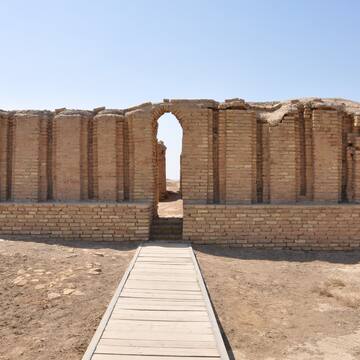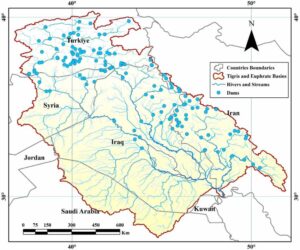
Can Iraq save its cradle of civilization before it vanishes? A desperate race against drought threatens both ancient sites and the livelihoods of its marsh dwellers. Did paradise vanish? As Iraq’s ancient Mesopotamian marshes, once whispered to be the Garden of Eden, crumble into dust, a cultural and ecological catastrophe unfolds.

The Refuge of Biodiversity
Once the biggest wetland in the Middle East, the Mesopotamian Marshes are extremely important from an ecological, cultural, historical, and religious standpoint. The Tigris and Euphrates rivers created these marshes in southern Iraq. The Iraqi Marshlands, also known as the Ahwar of Southern Iraq, are a UNESCO World Heritage site and home to the Marsh Arabs.
The Iraqi Marshlands were inscribed as a UNESCO World Heritage site in 2016, recognising their “Outstanding Universal Value” as a unique inland delta system in a hot, arid environment. The Ahwar of Southern Iraq is the refuge of biodiversity, says UNESCO.
These marshes are facing a severe water crisis that threatens both the environment and cultural heritage, driven by a combination of factors.
Numerous plant and animal species, including endemic and endangered bird and mammal species, can be found in the marshes. For some local species, they are the only place to breed, and for migratory birds, they are an essential wintering area. The water quality downstream in the Persian Gulf is impacted by the marshes’ natural filtering effect on the Tigris and Euphrates rivers.
A Thirsty Neighbor: The Geopolitics of Water drying up marshes
The completion of the Atatürk Dam in 1990, under the control of Turkiye, has resulted in a significant decrease in the water flow of the Euphrates River in Syria.
There have been some fluctuations in the outlet and a decrease in water incoming from the Euphrates River. The varying water levels pose a challenge for setting annual plans due to the unpredictable nature of the water resources. This has resulted in a significant decrease in Iraq’s water supply from 1971-2015.
While Iran’s impact is less significant than Turkey’s, it still contributes to the overall water scarcity issue in Iraq. Dam construction in both Turkey and Iran has fueled tensions with Iraq, which relies on the rivers for its survival.

Threatened archaeological sites in ancient Marshes
The water crisis is posing serious threats to Iraq’s Mesopotamian marshes. These marshes are home to numerous important archaeological sites. The archaeological site of Eridu and the Sumerian cities of Ur and Uruk are the main locations at risk. Millions of people’s livelihoods are in danger due to severe water shortages.
These growing conflicts among co-riparian nations and climate change-related issues are also endangering the region’s historical legacy. The area referred to as “The Fertile Crescent” is extremely significant historically. This region, which lies between the Tigris and Euphrates Rivers, is where civilization first emerged.
Artefacts and Historical Information Being Lost
When dried out, mud-brick is extremely vulnerable to erosion and water damage. It provides information about everyday life, social structure, urban planning, and ancient building methods. Cuneiform writing, the earliest known writing system, was found on clay tablets. Offers priceless insights into the history, literature, law, religion, and economics of Sumerian, Akkadian, Babylonian, and Assyrian cultures. These delicate tablets may be damaged or destroyed by the soil drying out. Textiles, wooden items, and remains of plants give details on the environment, agriculture, tools, and attire of the ancient world. In dry conditions, these materials are especially vulnerable to degradation.
A Warning from the wetlands of drying marshes
The Mesopotamian Marshes’ drying serves as an alarming indicator of the adverse impacts of regional conflict, political neglect, and environmental degradation. The fate of these historic wetlands should serve as a warning to a world increasingly threatened by resource scarcity and climate change.
Will we take decisive action to safeguard the most vulnerable ecosystems on our planet and learn from the mistakes of the past? Or are we going to watch helplessly as the foundation of civilization falls apart in front of our very eyes? The solution is not limited to Iraq; it also depends on the decisions that the international community makes.
For more such informative articles, stay tuned to The World Times.



